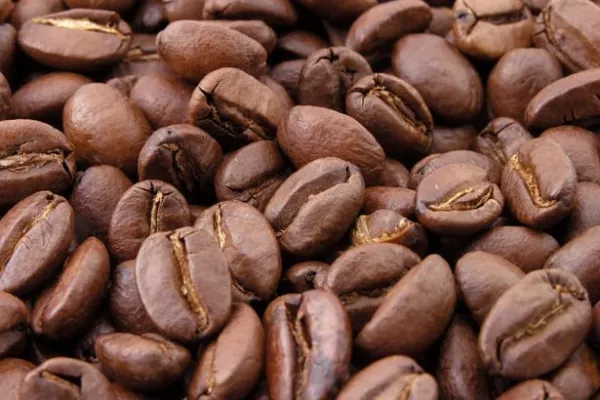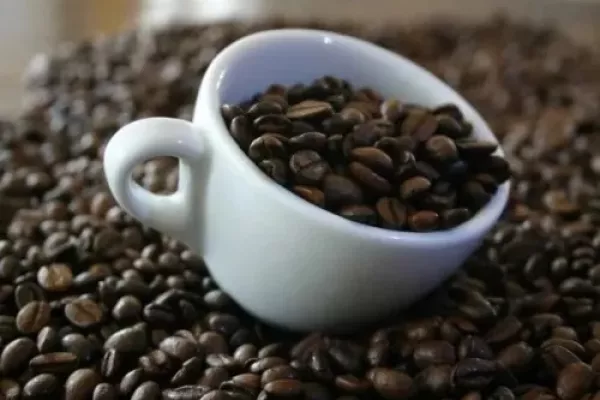Arabica coffee prices have risen 10% more, after jumping nearly 20% last week, to their highest in nearly seven years as unusual cold weather threatens coffee crops in the world's largest producer Brazil.
Last week, severe frosts damaged a large part of fields in the main Brazilian coffee belt and a new polar air mass is forecast to move over the same areas later this week, which will be the third strong cold front to hit crops this year.
Coffee trees are extremely sensitive to frost, which can cause severe damage and even kill trees completely. If a farm needs to replant trees, production would take around three years.
Preliminary estimates from the Brazilian government's food supply agency Conab said that last week's frosts had affected 150,000 to 200,000 hectares - about 11% of the country's total arabica crop area.
"This marks the first time since 1994 that the country has experienced such a weather event," coffee trader I & M Smith said in a market update, referring to the July 20 harsh frosts.
Arabica coffee futures prices on ICE rose sharply on Monday July 26, with the September contract climbing to a peak of $2.1520 per lb, the highest for the front month since October of 2014.
"The extent of the damage is still unclear, however estimates are now between 5.5 million and nine million [60 kg] bags, up from two million to three million last week," softs and agricultural commodity broker at Britannia Global Markets Charles Sargeant said.
Sargeant was referring to the 2022 Brazilian crop. This year's smaller production has been mostly harvested. A good production next year in Brazil was seen as important in balancing the global supply.
Arabica coffee futures have risen by approximately 35% since the end of June, raising the prospect that major brands may have to raise prices in the coming weeks.
"Over the last 12 months we have seen a sharp rise in ingredient, freight and other costs, which will require us to take appropriate measures," JDE Peet's, one of the world's largest coffee companies, said in a statement.
"Historically, significant fluctuations in green coffee prices have been reflected in the market and we expect that precedent to continue."
Starbucks and Nestle, which are also among the largest coffee processors and retailers in the world, declined requests for comments regarding possible impacts to the industry and the prospect of reduced availability next season.
Smaller players would certainly suffer, while consumers will have to pay more.
"We have stocks only up to September. We raised prices already three times this year, following the market moves, but the situation remains difficult," said Luciane Carneiro Mendes, a partner at Cafe Carneiro, a small roaster in Brazil.
Coffee prices in Brazil, she said, have risen from 400 reais ($77.30) per 60-kg bag in December to around 800 reais this month, but there are estimates for further increases ahead to around 1.000 reais.
Coffee, Cane And Orange Crops At Risk
Temperatures fell in swathes of Brazil on Thursday July 29, with rare snowfall overnight in some places, as a polar air mass advanced towards the centre-south of the global agricultural powerhouse, threatening coffee, sugarcane and orange crops with frosts.
Unusually cold weather in Brazil has already sent international prices for coffee and sugar higher and Friday was forecast to be the coldest day of the year, according to Marco Antonio dos Santos, a partner at weather consultancy firm Rural Clima.
In a report on Thursday July 29, dos Santos said that the south of Goiás and the south of Mato Grosso do Sul, states where farmers grow crops like corn, will face cold temperatures on Friday July 30 as the wave of cold air marched northwards.
"With the polar air mass strengthening, it is getting even colder in most of the agricultural producing regions of center-south Brazil," Santos said. "As such, the chances of frosts in coffee, sugarcane and orange areas increased dramatically."
In Brazil's southernmost state of Rio Grande do Sul, the cold wave brought snow and cold rains to at least 13 cities on Wednesday July 28.
Local television images showed tourists and locals taking photos and playing in the snow in the town of Sao Francisco de Paula as temperatures fell below zero.
The polar air mass should move over Sao Paulo and Minas Gerais, major producers of sugar, citrus and coffee, on Friday July 30, bringing freezing temperatures.
The extreme weather sparked concerns in global markets of a weak harvest in Brazil, which is a major exporter of agricultural commodities.
Raw sugar futures on ICE hit a five month high on Thursday July 29 as investors continued pricing in the effects of the cold front in the world's largest producer.
Agriculture federation FAESP in the main sugar belt Sao Paulo state said last week frosts had already hit 15% to 30% of the cane crop, which will probably lead to lower production.
Indian traders for the first time have signed sugar export contracts five months ahead of shipments as a likely drop in Brazil's production prompted buyers to secure supplies in advance.
As stated above, Arabica coffee prices touched a nearly seven-year high this week as the unusual cold weather affected the crop in Brazil, the world's top producer, with companies poised to pass on higher costs to consumers.
Preliminary estimates from the Brazilian government indicated last week's frosts alone has affected 150,000 to 200,000 hectares (370,000-490,000 acres), about 11% of the country's total arabica crop area.
"No one really knows the depth of damage undertaken," said coffee exporter Comexim, which estimated a 13% loss on next year's production at the Cerrado region in top coffee growing state Minas Gerais.
Brazil's second corn crop, which represents 70% to 75% of production in a given year, has suffered from drought and the ill-timed frost as farmers began to harvest it. Corn is a key ingredient for livestock feed.
The state of Parana, Brazil's number two grains producer, cut its projection for the second corn crop by nearly 40% on Thursday July 29 to 6.1 million tonnes.
The situation led global grain traders to exit their export contracts using washout clauses, sharply reducing Brazil's export prospects this year and increasing the need to raise corn imports.
Wheat is also at risk from frosts as around a third of crops in Parana, the largest Brazilian producer, is at a development stage prone to damage from cold.
News by Reuters, edited by Hospitality Ireland. Click subscribe to sign up for the Hospitality Ireland print edition.









